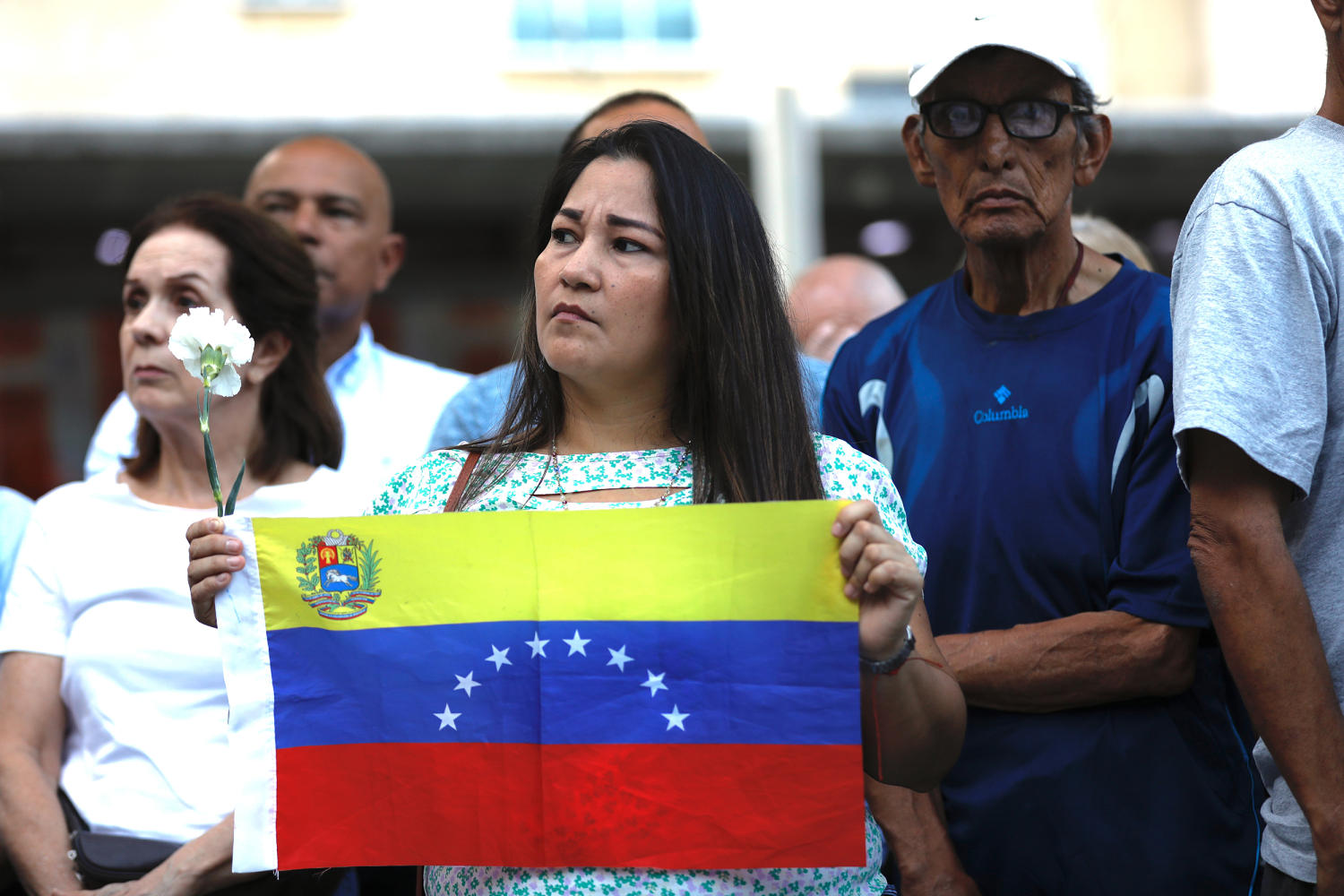U.S., Western nations take measured stance on Venezuela’s disputed vote

More than two weeks after Venezuelan President Nicolás Maduro claimed reelection victory, the U.S. and other Western countries are showing little sign that they plan to quickly impose tough measures for what many of them have condemned as voting fraud.
Most governments have demanded that Venezuela’s National Electoral Council (CNE) release a full set of voting tally sheets after both Maduro and opposition candidate Edmundo González declared they won. Brazil and others have been trying to secure talks between the two sides, political rivals that have not conciliated in decades.
Protests against Maduro in the days following the vote were met with a crackdown, with authorities denouncing the demonstrations as an attempted “coup.” The confrontation left 23 dead and more than 2,000 people arrested, according to data from the United Nations on Monday.
Western governments are trying to take it “slowly” in their reactions, said one embassy official, who spoke on condition of anonymity because he was not authorized to speak publicly on the matter. No government wanted to be first on anything, he added.
“This isn’t a race to see who can verbally go the furthest in their demands with zero effectiveness, but to be effective in our support for democracy in Venezuela,” Spanish Foreign Minister Jose Manuel Albares told a Senate hearing on Tuesday.
Spain, which has deep-rooted ties with its former colony, was “leading the EU stance” against violence and for the defence of rights such as freedom of peaceful assembly in Venezuela, he said.
Three officials from different countries said the measured response comes as they are mindful of what happened after Maduro’s 2018 reelection.
Then, the vote was quickly condemned as a sham and led to the most severe sanctions yet on the OPEC nation. An interim government led by the opposition was widely recognized overseas, but the effort ultimately evaporated, fortifying Maduro in power.
In Washington, which under Republican President Donald Trump blocked Venezuela’s critical oil exports, there seems little appetite for more severe sanctions. Democratic U.S. officials so far have threatened but have held off on imposing new punitive measures.
The Biden administration has been keen not to complicate the way forward for the opposition, led by Maria Corina Machado and candidate Gonzalez, as the Venezuelans seek “even small concessions” from Maduro, said one person familiar with Washington’s thinking.
Some of those concessions are related to open communication channels between the two sides that the opposition hopes could lead towards an impartial verdict on the election’s results and a possible political transition.
A review by Venezuela’s Supreme Court is likely to take time and may not lead to an impartial opinion, given that it is packed by Maduro allies.
U.S. officials have been reaching out to regional and international partners to organize a coordinated response, the three sources said. Cautiously, the U.S. has recognized Gonzalez as the winner of the July 28 election, but it has not called him president-elect.
“Now is the time for the Venezuelan parties to begin discussions on a respectful and peaceful transition,” said U.S. State Department deputy spokesperson Vedant Patel on Monday.
Washington is considering a range of options “to pressure Maduro to return Venezuela to a democratic path,” he added.
However, the Biden government’s remaining options appear to be limited. The U.S. in April reimposed some oil sanctions on Venezuela, accusing Maduro of reneging on electoral commitments, and it has enforced numerous individual sanctions in the last five years, including on the CNE’s head, Elvis Amoroso.
U.S. officials have expressed concerns that post-election upheaval could spur more Venezuelans to leave the country and head for the U.S.-Mexico border, according to the Washington-based source. With immigration already a hot-button issue, that could create new problems for U.S. Vice President Kamala Harris in her campaign for president.
Venezuela’s foreign ministry and the U.S. Treasury Department did not immediately reply to requests for comment. “We will not discuss the content of our private diplomatic discussions,” a State Department spokesperson told Reuters.
Fragmented Americas
The Washington-based Organization of American States has failed to agree a joint response, even as the regional group’s Electoral Cooperation and Observation issued a detailed report on “illegalities, flaws, and bad practices” during the election.
“The official results are not trustworthy or deserving of democratic recognition,” it concluded in the July 30 report.
The presidents of Brazil, Mexico and Colombia are coordinating action while calling for full access to voting records, while a coalition including the U.S., Canada, Panama and others are holding separate talks among each other and with Venezuela’s opposition, people familiar with the matter said.
Panama offered political asylum to Maduro — a controversial offering since he is under investigation by the International Criminal Court for allegations of human rights violations — and called for a regional summit to discuss the election outcome.
Brazil will not recognize Maduro’s victory without full disclosure and validation of the tallies, a Brazilian government source said, adding that officials’ worries about escalating violence and threats of more political arrests have increased.
“Messages to Maduro have been sent making clear that arresting Gonzalez and Machado is a no-go,” the source said, adding that Brazil’s focus is on dealing with both sides.
The European Union last week said there was not enough evidence to support Maduro’s victory as announced by the CNE. It did not anticipate any action.
Countries including China, Russia, Nicaragua and Cuba have recognized Maduro’s victory and offered him support.
For more from NBC Latino, sign up for our weekly newsletter





